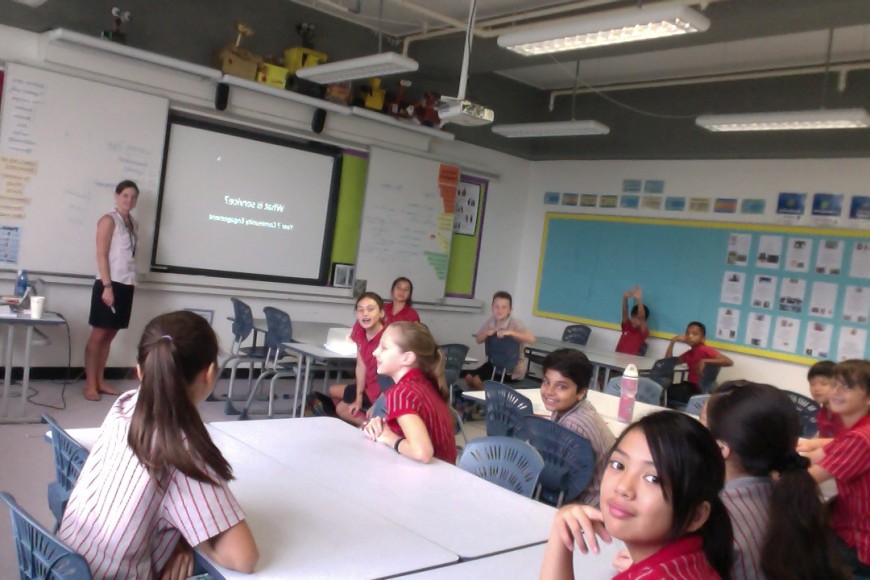Community Engagement (CE) is DC’s approach to a key value shared by the IB community – service. CE aims to have our MYP students committed to being actively involved in efforts that support and advance the community, while offering students the opportunity to strengthen and extend their personal and interpersonal learning. Participation in Community Engagement, whether the activity is Creativity, Action or Service, has the emphasis on the student learning by planning and then doing REAL tasks that have REAL consequences, and then REFLECTING on these experiences over time.
This week the students were introduced to the aspect of service. All students in Y7 are to be involved in at least one service activity; this is often completed in their own personal time over the academic year. Service includes participation in activities with an environmental, community development or educational theme, either within the school community or the community at large. Some of these activities provide an opportunity to address global issues.
Types of service (different ways to engage):
Direct service: Service that involves direct interaction with a targeted cause, whether it is people, the natural environment, or animals. Examples include and are not limited to: developing a waste management policy for a chosen community, holding craft lessons at an elderly persons home, walking dogs for PALs, or regular tutoring students with learning difficulties.
Indirect service: Service that has a verified benefit to the targeted cause, but you do not see those you aim to support. Examples include and are not limited to developing promotional material for an NGO, developing materials to support improvements in literacy, updating the website for an orphanage located overseas, organising a concert to benefit a local NGO, or joining an environmental cause such as Earth Hour.
Advocacy: Get involved in supporting an issue of public interest by promoting the cause or concern. Conduct research to collect information on the issue and use it to influence change in practices and policy. Examples include and are not limited to joining or initiating an awareness campaign about the plight of a local waterway, submitting articles to local media on issues of poverty in the local community, creating a video on improving waste disposal in the community and posting it online, advocating for an awareness campaign on hunger.
Please discuss with your child what they are planning to do. The purpose is for students to be challenged by participating in roles that they would not normally do as well as be involved in activities that will make a SIGNIFICANT DIFFERENCE to their lives and, where applicable, to the lives of others.

